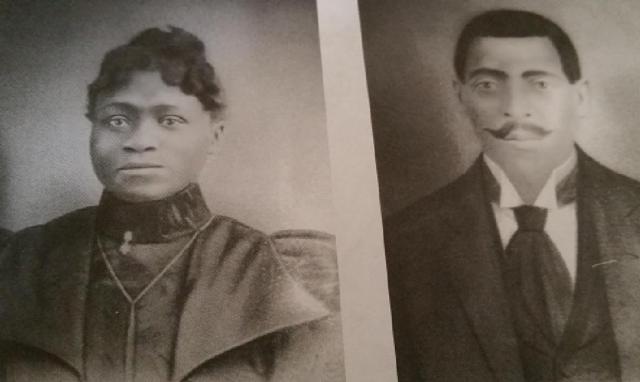ALTON - Elijah P Lovejoy was one of the first white opponents of slavery in the United States, and he made his last stand in Alton.
Born in Albion, Maine, Lovejoy created the state Anti-Slavery Society and using his position as the editor of the Alton Observer to propagate abolitionist viewpoints. When an economic crisis occurred in 1837, many Altonians wondered if Lovejoy's viewpoints would contribute in a loss of business from nearby St. Louis - as Missouri was a slave state.
Get The Latest News!
Don't miss our top stories and need-to-know news everyday in your inbox.
On Nov. 7, 1837, an angry mob discovered Lovejoy's press (previous presses had been destroyed or thrown into the Mississippi River). The mob fired at Lovejoy, and Lovejoy and his men returned fire. The mob tried to enter the warehouse using a ladder, and Lovejoy pushed it down with supporter, Royal. When the two went to push it a second time, they were shot. Lovejoy died with five shotgun slugs in his body.
Alton's District Attorney, Francis Butter Murdoch, prosecuted the murder, but no one was convicted. It should be noted the jury foreman was part of the mob and was wounded in the attack, and the presiding judge doubled as a witness. It may have been those obvious conflicts of interest, which led to the "not guilty" verdict.
Following his death, a monument to Lovejoy was erected in the Alton City Cemetery, and the Alton School System named a school after him in 1897. That school, ironically, was used to segregate the schools and took only black children.

A part of that printing press was recovered by Alfred Pitts in 1915. Pitts was born in St. Charles, Missouri and was employed by the Sparks Milling Company as an engineer. That press is currently in the possession of the Alton Telegraph, which hosted it in the lobby of its former building on 111 E. Broadway.
Pitts was married to Leota Cannon Pitts, who bore him 12 children and served on the Stewardess Board of Model Chapel AME Church, where she was a lifetime member. She was also a member of Bright Hope Missionary and the Order of Eastern Stars
To honor Lovejoy and his martyrdom for the abolitionist cause, the Lovejoy Association was founded. Its first trustee was Isaac Kelly, who was born a slave in the plantation of Thomas Cooper in Edington, Georgia in 1825. Kelly was freed by Cooper's oldest son when he was a teenager, and was sent to Alton, Illinois in the care of the former president of Shurtleff College. Prominent Altonian, Major Charles Hunter became his guardian.

At the age of 17, two years after coming to Alton, Kelly opened the first of two barbershops. He worked as a barber for 64 years, and served as "door keeper" for the Illinois General Assembly in Springfield.
In the community, Kelly served as deacon at Union Baptist Church for 40 years, worked as a sub-conductor on the North Star Line of the Underground Railroad, was the first Grand Master of the Alton G. L. Washington Masonic Lodge - the third lodge organized in Illinois - and was the second Grand Master of the Prince Hall Masons in Illinois.
A Masonic lodge is named for his honor in Belleville, Illinois.
Henry Hunter (Bramble) became the second trustee for the Lovejoy Association. Hunter was born in 1857 in Washington, Missouri. He was the son of a slave woman and a man named "Mr. Bramble."
His mother took work for the Beckenridge Family in Alton, and according to 20th Century African American Leaders in Alton, received both an education and a lifelong love of music. He took work at the Thomas Corbett Brickyard when he was 14, and was employed as a furnace fireman and then engineer at the Standard-Tilton Milling Company, where he worked for 62 years.
Outside of work, Hunter organized the Alton Colored Republican Party in 1881, and served as its president for 40 years. He also founded and served as the first Grand Master of the Alton United Brothers of Friendship Lodge. He was also a charter member of the Negro Chapter of the Odd Fellows Lodge in East St. Louis and fought for integration of schools in Alton alongside Scott Bibb.
As a writer, Hunter contributed to the Springfield State Capitol, a weekly black newspaper, as its Alton correspondent.
He also organized the Hunter's Band, which performed for 26 years, and was well-known throughout Southern Illinois.
More like this:

